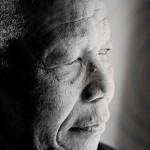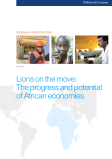
Let us continue to champion diversity for it is the key to strengthening individuals, institutions and society. Let us positively impact the world that we live in, inspired and in humility as Mr Mandela did.
INSEAD Dean Ilian Mihov remembers Nelson Mandela in the INSEAD community on Yammer (alumni password required). He writes, “Last week we lost Nelson Mandela: a leader whose ideas and life inspired global transformation. Last week we lost Nelson Mandela: a leader whose ideas and life inspired global transformation. A universal symbol of courage and determination in the face of injustice, Mr Mandela’s journey in life was all about equality and freedom. His vision and impact reached far beyond South Africa. His unique, unwavering moral dedication galvanized millions across the world, inspiring them to join in the movement to dismantle apartheid.
Mr Mandela understood the power of unity in diversity. He also understood the meaning of one essential human act – forgiveness. His genius enabled him to bring South Africa together, despite the country’s divisive past. By his example, he reminded us all – everywhere – that forgiveness and understanding prevail. Ultimately, it is stronger than the hardest prison chain. Read more here…
(Image Source: Nelson Mandela Foundation)

 On September 14th 2012, we had the honor of welcoming Amine Tazi-Riffi, director at McKinsey & Company, as guest speaker to give us a talk on Africa – the Progress and Potentials of African Ecomonies.
On September 14th 2012, we had the honor of welcoming Amine Tazi-Riffi, director at McKinsey & Company, as guest speaker to give us a talk on Africa – the Progress and Potentials of African Ecomonies.